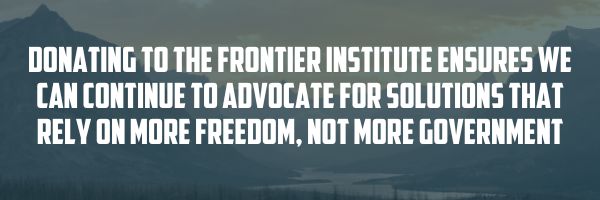2022 Legislative Viewpoints Wrap-Up
"We are greatly appreciative to all the Democrat and Republican legislators who made this series possible, and we look forward to bringing you more of this content come next interim session."
As you may already know, Montana is unique in that its legislature only meets every other year. While this structure does allow for average Montanans to run for office, it does have some drawbacks. In particular, Montanans are often left out of the loop in regard to work being done during the interim.
In response to this drawback, we created the Legislative Viewpoints series as a way for our audience to hear directly from Montana lawmakers on both sides of the political aisle on the work they are doing during the interim session.
During the last six month’s legislators discussed everything from potential solutions to Montana’s housing crisis to the work being done to cut healthcare red tape.
As the Interim Session begins to wind down, so will Legislative Viewpoints – until the next interim session. But before that happens I have the pleasure of introducing the final column of the year.
This Legislative Viewpoints column comes from President Pro Tempore, Senator Jason Ellsworth. In this final column of the year, he lays out the path forward for Senate Majority, and the things the Majority hopes to accomplish during the 2023 Legislative session.
“We can’t as a state completely overcome national and international trends on things like inflation, workforce shortages or the possibility of a looming recession. But what we can do at the legislative level boils down to three main categories: cut costs where possible, enable innovation, and protect what we already have.”
We are greatly appreciative to all the Democrat and Republican legislators who made this series possible, and we look forward to bringing you more of this content come next interim session.
For Liberty,
Tanner Avery

If you enjoy our newsletter and would like to see our impact grow then please consider making a tax-deductible donation today by clicking HERE. Make sure to select the option that says “My donation is for the Second Anniversary fundraising campaign”
The Latest
Facial Recognition Update
This week the Economic Affairs Interim Committee met to discuss draft legislation to limit the government use of facial recognition technology. We submitted formal comments on ways the committee can work to improve the draft legislation, which you can find here.
Our Take: We look forward to continuing to work alongside the Committee members to create legislation that allows Montana’s government to take advantage of facial recognition technology’s benefits, helping to make our law enforcement more effective and our state programs more efficient, without threatening the privacy rights we hold dear.
The Science of Forest Management
In recent testimony before the U.S. Senate Energy and Natural Resources Committee, Forest Service Chief Randy Moore explained that the Bootleg fire provided a perfect case study showing how in areas where active forest management strategies such as thinning and prescribed burns were used together they created conditions where the fire was more predictable and less devastating.
Our Take: Active forest management is one of the most effective tools at the disposal of forest managers, working to expand the number of acres actively managed is vital to addressing Montanans yearly wildfire crisis.
How NIMBYism chokes off affordable housing even in Big Sky Country
In a recent op-ed published by the Washington Post, Frontier President and CEO Kendall Cotton discussed regulatory barriers to building affordable housing and President Biden’s plan to incentivize cities to remove these regulations. This is one column you don’t want to miss.
“Biden’s Housing Supply Action Plan will leverage federal grant funding to entice skeptical local governments into reforming exclusionary zoning codes. Cities that give landowners freedom to build denser, more affordable homes to meet the needs of low- and middle-income residents will be rewarded with higher scores in existing federal grant processes.”
